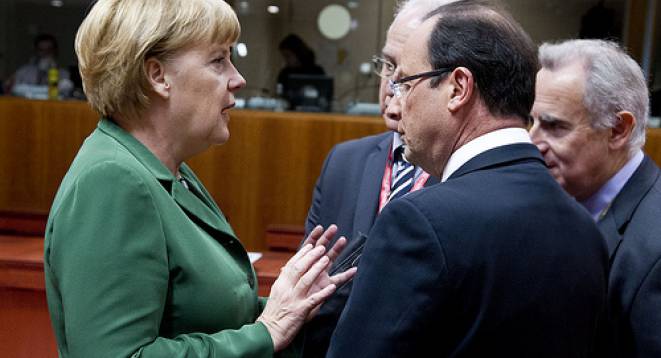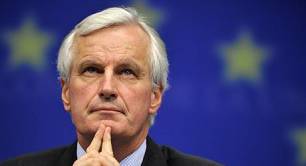No teeth for Europe's new public services rules, unless leaders bite

Following a decision taken this week at the European Parliament, £450 billion in public services contracts across Europe is to be opened up to smaller business and social enterprises.
But at day one of the European Commission's conference in Strasbourg there were concerns around how the opportunity will play out at ground level – reports Pioneers Post assistant editor Isabelle de Grave from Strasbourg
"Dwindling social protection from the state, and the financial weakness of the public sector means less and less social protection for our citizens," European Parliament President Martin Shulz said, speaking at Strasbourg's social enterprise event today.
"We cannot just accept this. The social economy is a concept that we must put at the forefront of our work," Shulz said as European commissioners championed new rules for a more socially responsible approach to outsourcing public service delivery.
New EU legislation will instruct public authorities to place more emphasis on environmental considerations, social aspects and innovation when awarding contracts.
"Across Europe the traditional approach has been to commission the service at the lowest price," said Ariane Rodert Vice-President Group III of the European Economic and Social Committee (EESC). Now the emphasis will be on the best bid and on organisations that promise to deliver on social and environmental fronts.
The directives are "very positive", said Michel Barnier, European Commissioner for Internal Market and Services. The new rules are also expected to cut administrative burdens and help smaller companies to bid by encouraging the division of contracts into lots.
As social enterprises enter the public services arena, they will face stiff competition to win contracts and could struggle to benefit without targeted supportive measures within member states. "This is why it is key that we are committed to fostering and supporting the social enterprise sector," said Rodert.
But a more immediate concern, Rodert said, is whether the governments in Europe will push the new procurement rules through.
New rules, diverse settings
In many countries it is not simply a matter of adopting new rules but of re-structuring. Traditional models in Austria and Germany use public money to fund NGOs who provide welfare services.
"In Austria it works well, workers get paid well to do a good job, and services reach a high quality," said Dr. Christophe Lechner, an Austrian member of the European Economic and Social Committee.
"Around 50% of Germany's public sevices are provided by NGOs and supported by taxpayers money," said Filippo Addaril, Director of International Strategy and Head of EuropeLab at the Young Foundation. "Germany are financially strong, and not particularly interested in changing the way they fund public services."
In France the exclusion of social enterprise from the traditional social economy could be a barrier to action.
"We are misunderstood, and not really considered a part of 'L'Economie social et solidaire (the social economy)’ – traditionally represented by cooperatives and associations in France," said a French social entrepreneur working in after school childcare, and also a member of MOUVES (Movement of Social Entrepreneurs).
"Regional authorities are often a dead end for funding, because they confuse social enterprises with for profit companies," she said, adding that "there is promise in Paris, where local authorities are more innovative and willing to grant social entrepreneurs access to finance".
MOUVES has spent three years raising the visibility of social enterprise across France. But regional authorities, who will need to take the opportunity to implement the new EU standards for procurement, still struggle with the concept of social enterprise.
In Greece Olga Theodorikakou, B.o.D Executive Assistant Head of Projects at social enterprise Klimax Plus, spoke about the need to rejuvenate and restructure Greece through social enterprise but said that visibility and access to finance were holding social enterprises back.
And in Turkey Suat Özçağdaş, founding partner of Center for Social Innovation (SIM), said that although schools and universities were creating courses and incubators, building a grassroots movement, the government was still hestitant to support social enterprise.
The Social Value Act in the UK, which will reach its first anniversary at the end of next month, already instructs public authorities to 'voluntarily' consider social value creation when selecting organisations to provide services. But "it is disappointing that it was not made mandatory", said Rodert.
The message from the European Commission is clear: "Europe is not just about finance, we can actively help national governments to create new legislation around social enterprise," said Barnier. But it is up to Europe's leaders to listen.

